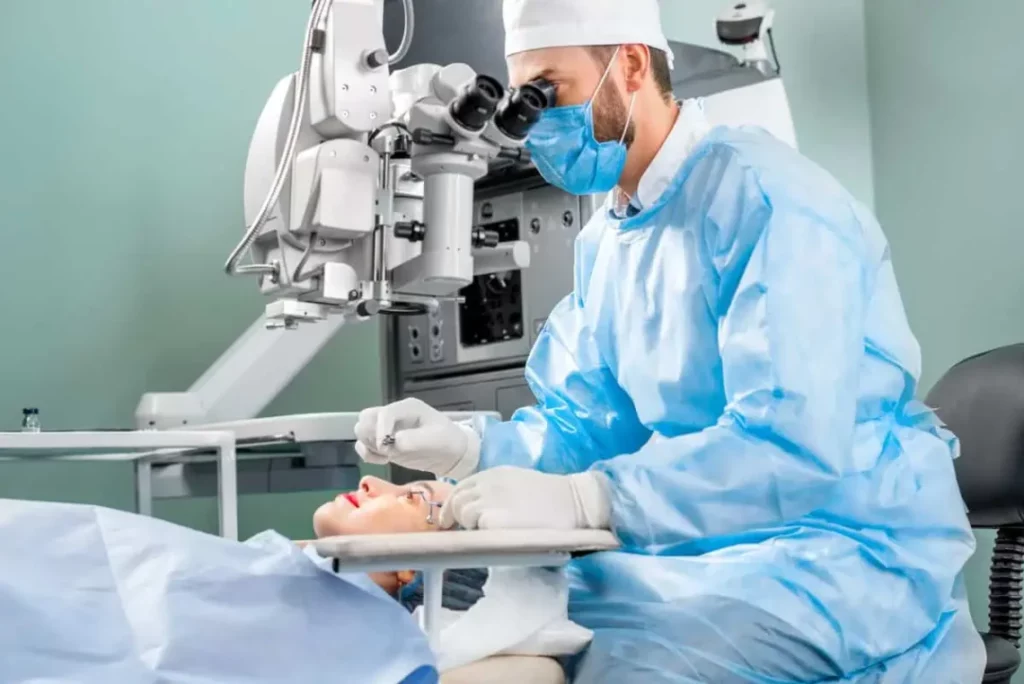Imagine waking up one morning and realizing the world looks clearer, brighter, and more alive than it has in years. For many, this isn’t just a dream—it’s the reality after cataract removal.
As an eye doctor who’s seen countless lives change for the better, I want to walk you through the first 30 days after cataract surgery. If you’re feeling a little nervous, that’s perfectly normal. But trust me—this journey, from blurry days to bright mornings, is worth it.
Introduction: A New Chapter Begins
Cataracts often sneak up quietly. Maybe it starts with struggling to read the newspaper, or noticing that streetlights have fuzzy halos at night. For many, the colors of the world slowly fade, and daily life becomes a little less vibrant.
Then comes surgery—simple, safe, and surprisingly fast. The moment the cloudy lens is removed and replaced with a clear one, everything begins to change.
But it’s not just about the surgery. The following 30 days play a key role in helping your eyes heal and your vision reach its full potential. Here’s what you—or your loved one—can expect, week by week.
See more: Finding the Right CPAP Mask for You: Tips and Recommendations
Week 1: The First Few Days
The first day after cataract removal can feel like waking up in a slightly new world. Most patients describe a mix of excitement and mild discomfort. You might notice:
- Light sensitivity (especially in bright rooms)
- Mild itching or grittiness (like a bit of sand in your eye)
- Blurry or foggy vision that improves each day
Don’t worry—these sensations are normal and usually short-lived.
Your New Best Friend: Eye Drops
You’ll be given prescription eye drops to prevent infection and reduce inflammation. Be consistent. Think of these drops as little helpers guiding your eye to heal smoothly.
Rest Is Part of the Process
Take it easy. No heavy lifting, bending over too far, or rubbing your eye. A protective shield may be worn at night to prevent accidental bumps while you sleep. Follow-up visits in the first week are important—your doctor will check to make sure everything is healing just right.
Week 2: Adjusting to Clearer Vision
By now, many people begin noticing some amazing changes.

- Reading becomes easier.
- TV looks crisper.
- Colors seem more vibrant.
You may catch yourself smiling at things you hadn’t fully seen in a while—like the details in a loved one’s face or the petals of your favorite flowers.
It’s generally safe to return to light activities this week, like walking, watching television, and reading. But still, no rubbing your eyes, and continue your eye drops as directed.
Emotions Can Catch You by Surprise
It’s common to feel emotional during this stage—hopeful, surprised, even teary-eyed (in a good way). Some patients say it feels like they’ve been given a new lease on life.
Week 3: Gaining Confidence
By the third week, your vision may feel more stable. Most people experience:
- Greater clarity
- Less glare or halo effects
- More comfort in daylight
You might be cleared to drive again, especially if your vision meets the legal standard. Many people also feel confident resuming social outings, returning to hobbies, or running errands on their own.
Some slight eye dryness or occasional flickers of blurriness may still pop up—that’s okay. Your eye is still adjusting and healing.
Week 4: Seeing the World Differently
This is when many patients describe their “aha” moment.
Vision feels more natural, and many report that colors appear sharper and brighter. It’s like someone wiped the fog off a window you didn’t realize was clouded.
Your doctor might schedule a final post-op exam to:
- Confirm that healing is complete
- Test your visual acuity
- Decide whether glasses are needed (some people still need reading glasses)
FAQs: Honest Answers to Common Questions
“Can I rub my eyes?”
No. Even if your eye feels itchy, rubbing can interfere with healing. Use your prescribed drops and a cool compress (with your doctor’s okay) if needed.
“Will my vision keep improving?”
Yes. Many patients notice small improvements even into the second or third month after surgery. Patience and care go a long way.
“What if one eye feels different than the other?”
That’s common, especially if your other eye still has a cataract or hasn’t been operated on yet. Talk to your doctor—they’ll help create a plan to balance your vision.
Conclusion: Bright Mornings Are Just the Beginning
Recovering from cataract removal is not just about healing the eye—it’s about rediscovering life. Whether it’s reading to your grandchild, watching the sunrise, or cooking your favorite meal without squinting, the gift of clear sight is powerful.
If you’re on the fence about surgery, or if you’re caring for someone who is, know this: the path ahead is full of brightness, beauty, and confidence. And it all begins with the first step toward clearer vision.
Don’t let blurry days hold you back—your bright mornings are waiting.

